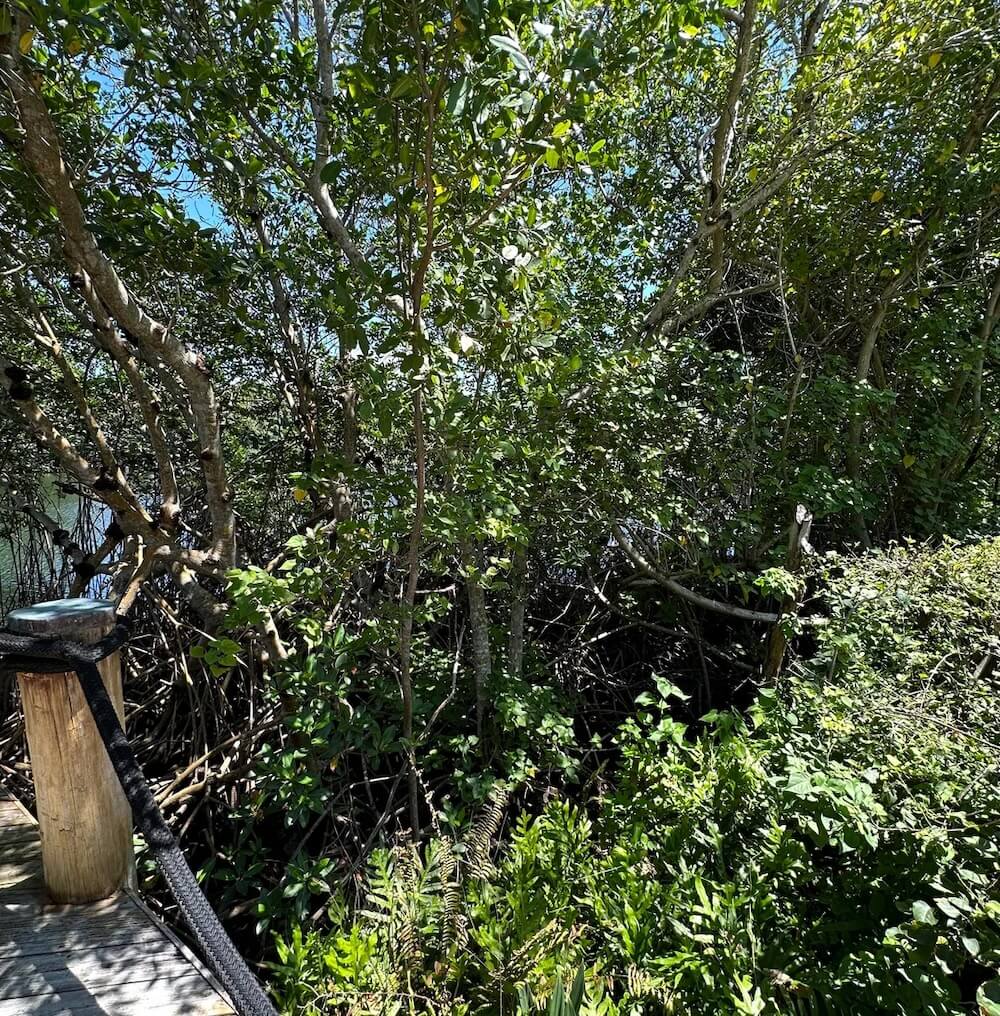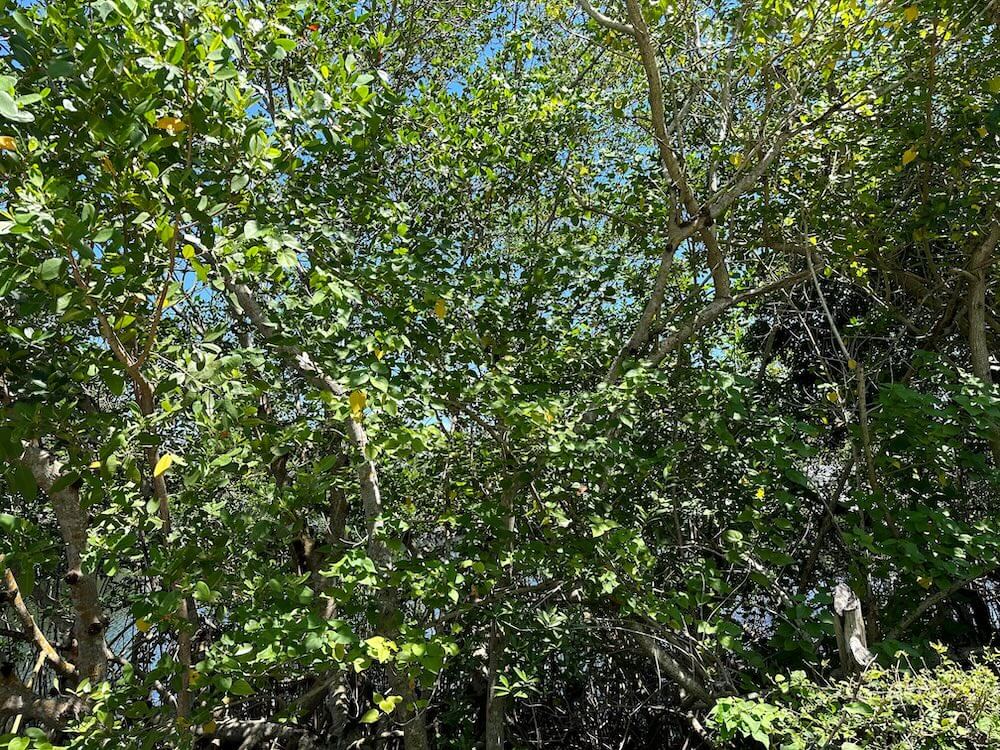After being told they have an extremely invasive species in their yard, one Redditor posted that the plant "actually provides natural shade and privacy on the property, therefore I did not anticipate ever removing them or the desire to do so."
While the heart-shaped leaves and white and red-spotted flowers of the Seaside Mahoe may look attractive, the OP may need some clarification on what an invasive species can do to their property.


The post has three photos of mangrove trees that cover the area. Some of these trees need cutting to make way for dock work on the home.
🗣️ Should we be actively working to kill invasive species?
🔘 Absolutely 💯
🔘 It depends on the species 🤔
🔘 I don't know 🤷
🔘 No — leave nature alone 🙅
🗳️ Click your choice to see results and speak your mind
The seaside mahoe is growing between the mangroves, and the homeowner isn't alarmed after warnings from the Department of Environment Resources Management. While the area may look beautiful now, a non-native plant will eventually choke out others by sucking nutrients from the soil.
Even a tree can suffer from an invasive plant. Some may cause destructive tree diseases like root rot or leaf blight. The loss of nutrients in the soil can slow down tree growth and even cause death. Because non-native plants grow fast and may quickly propagate seeds or rhizomes underground, they can be hard to get rid of — it has taken some gardeners years to do so.
While the homeowner enjoys the shade of the seaside mahoe, there are better alternatives in native plants that also provide shade and ground cover, such as wild ginger. Focusing on native greenery produces a stronger yield that uses less water and attracts friendly pollinators like ladybugs, butterflies, and honeybees. If your property does fall victim to an invasive species, you can always take steps to rewild your lawn.
Since mangroves are so vital, the poster from South Florida is having an arborist take a look before coming up with a plan on how to move forward.
Understanding the harm of non-native vegetation, one person bluntly said, "Harboring invasive species on your property is kind of like regularly dumping a little toxic waste into the local ecosystem."
Join our free newsletter for easy tips to save more and waste less, and don't miss this cool list of easy ways to help yourself while helping the planet.









